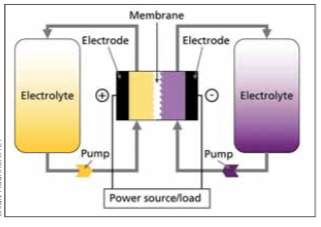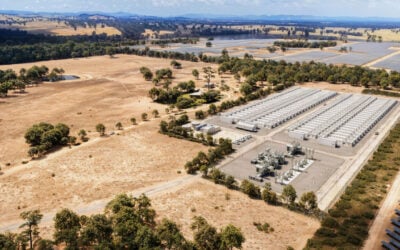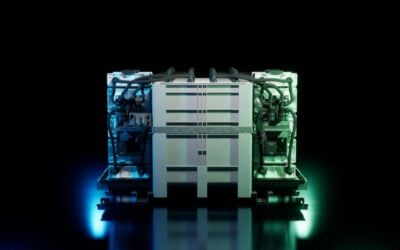
Vanadium redox flow batteries are almost as reliable as diesel generators in providing resiliency, but won’t be competitive against lithium-ion unless cost reductions can be achieved with the scaling up of manufacturing and deployment.
A study funded by the US Department of Defense (DOD) appears to confirm some broad conclusions about vanadium redox flow batteries that may perhaps not be particularly surprising to those in the industry that have followed the energy storage space for some time. Nonetheless studies of its type could form an important step in validating the technology for further investigation and in then gaining market traction.
The DoD contracted energy solutions corporation Ameresco to undertake the study, in partnership with consulting services and project development company 2ndPath Energy, funded via the Department’s Environmental Security Technology Certification Program (ESTCP). The programme seeks to “promote the transfer of innovative technologies from proof-of-concepts to field or production use,” Ameresco said.
Vanadium redox flow batteries enjoy some advantages over lithium-ion including the capability of storing electrical energy for long durations of 10 or 12 hours a day without significant degrading of battery electrolytes, which are liquid and pumped through tanks. However, they also have some disadvantages such as lower round-trip efficiency, while in economic terms they have yet to realise potential cost reductions of the kind enjoyed by lithium-ion by the latter’s ubiquitousness across the world not only in recent renewable or standalone stationary energy storage projects but also in electric vehicles, phones, laptops and more.
Try Premium for just $1
- Full premium access for the first month at only $1
- Converts to an annual rate after 30 days unless cancelled
- Cancel anytime during the trial period
Premium Benefits
- Expert industry analysis and interviews
- Digital access to PV Tech Power journal
- Exclusive event discounts
Or get the full Premium subscription right away
Or continue reading this article for free
The study sought to determine the reliability aspects of vanadium redox flow batteries (VRFB) versus diesel generators for covering outages of up to 168 hours as well as assessing the VRFB versus lithium-ion for critical load coverage both on a technology as well as economic basis.
The full report, which can be downloaded here along with an executive summary, admits that while VRFB’s could cover reliability and resilience metrics almost as well as diesel generators, dipping below diesel’s critical load coverage at 168 hours by only 1.6% to 3%, the VRF technology merits further investigation in order to validate and test its “true reliability metrics”, which Ameresco study author Benjamin Leveaux said will now take place in Phase 2 of the study.
The Ameresco team went on to find that at the moment, the higher operating cost of flow batteries makes lithium-ion a better choice for covering critical loads at large-scale, but that it “is important to recognise that VRF BESS technology is early on in its development and deployment lifecycle and has not yet appreciated the vast cost reductions due to economy of scale that Li-Ion has enjoyed.”
“Should costs of the VRF technology decrease in the future, there may very likely be conditions where a VRF BESS would provide a more attractive solution than Li-Ion,” the study said, adding that this may especially be the case in settings where there are opportunities to reduce energy costs using long duration energy storage.
“We feel the conclusion that the reliability of VRF BESS technology is sufficient against the baseline for performance is a major observation of this project and one that warrants further investigation… There is also the potential for VRF battery technology to provide important benefits to a project as compared with Li-Ion technology while improving safety and reducing long term replacement requirements.”
In a recent interview with our sister site Solar Power Portal, Matt Harper, chief commercial officer of vanadium flow battery company Invinity Energy Systems said that the technology can meet opportunities and use cases that lithium cannot. Invinity is also a partner in the under-construction Oxford Energy Superhub, which includes a combined lithium-vanadium hybrid battery storage system.
Read the technical paper article, Redox flow batteries for renewable energy storage, by a team of experts from CENELEST, a joint research venture between the Fraunhofer Institute for Chemical Technologies and the University of New South Wales which first appeared in Volume 21 of our journal, PV Tech Power.
Solar Media’s new Digital Summits series has been launched to provide critical market insights, intelligence and networking opportunities to maintain our industries’ momentum. Running throughout May and June, the Digital Summits will deliver the full live event experience to your own home. The Energy Storage Digital events include a strand on Beyond Lithium – advancing technologies for energy storage.
Energy Storage Digital Series: 11-15 May. See here for more information on how to take part.





